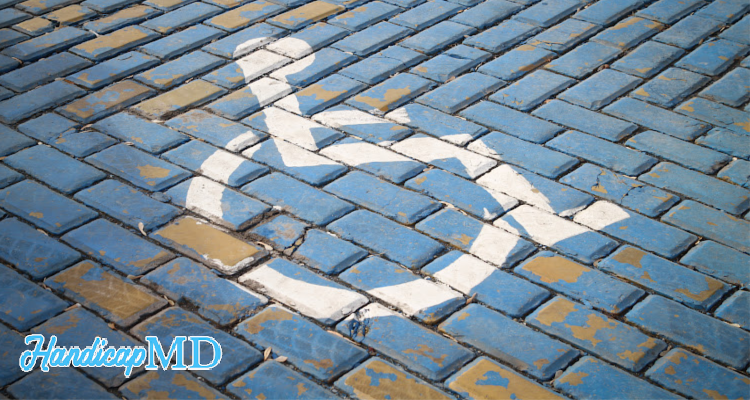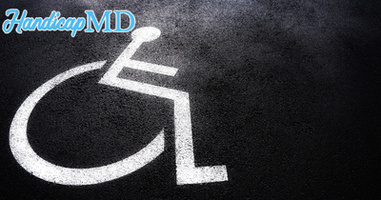
Myths vs. Facts: Debunking Common Misconceptions about Handicap Placards in Maine
In today's information age, it's crucial to distinguish fact from fiction, especially when it concerns something as important as handicap passes in Maine. Misconceptions can lead to confusion and potentially result in missed opportunities for those who genuinely need them. This article aims to dispel common myths, provide accurate information, and help you understand the significance of handicap placards in Maine.
Introduction
Handicap passes are essential tools for individuals with disabilities, allowing them to access parking spaces and facilities designed to make their lives easier. However, there are many myths and misconceptions surrounding these placards. In this article, we will delve into the world of handicap permits in Maine, debunking common myths, and providing you with valuable insights into their use.
Myth 1: Anyone Can Get a Disability Pass
Fact 1: Eligibility Criteria
Contrary to popular belief, not everyone can obtain a disability pass in Maine. Eligibility is determined by specific criteria, which often include mobility impairments, chronic health conditions, or visual impairments. Applicants must provide medical documentation to prove their eligibility.
Myth 2: Handicap Permits Are Lifetime Benefits
Fact 2: Permit Expiration
Another common myth is that these are valid for a lifetime. In reality, they have an expiration date. Passes typically need to be renewed every few years, and this renewal process ensures that the holder's condition is still valid for disability parking privileges.
Myth 3: Passes Are Only for Wheelchair Users
Fact 3: Diverse Disabilities
Disability passes are not exclusive to wheelchair users. They are intended for individuals with various disabilities, including those with non-apparent conditions like heart problems or severe asthma. ME recognizes a broad spectrum of disabilities that qualify.
Myth 4: You Can Park Anywhere with a Permit
Fact 4: Parking Regulations
Having a disability pass doesn't mean you can park anywhere you please. Regulations still apply. Authorized holders must adhere to parking rules and restrictions, and they are not exempt from paying parking fees where required.
Myth 5: It's Easy to Fake a Placard
Fact 5: Strict Enforcement
Some might believe that it's easy to fake one, but the consequences of doing so can be severe. ME enforces strict penalties for fraudulent use, including fines and legal action.
Myth 6: You Can Transfer Permits to Family Members
Fact 6: Non-Transferable
These are are non-transferable. They are issued to specific individuals and cannot be used by family members or friends, even if they are transporting the authorized holder.
Myth 7: Doctors Give Out Placards Freely
Fact 7: Medical Evaluation
Obtaining a Maine handicap placard requires a thorough medical evaluation. Doctors carefully assess an individual's condition to ensure they meet the eligibility criteria. Placards are not handed out freely.
Myth 8: Disability Permits Are a Free Pass
Fact 8: Fees and Renewals
While handicap placards grant disabled parking privileges, they are not entirely free. There may be fees associated with obtaining and renewing. These fees help support the program and ensure that only eligible individuals receive the pass.
Myth 9: You Don't Need to Display the Placard
Fact 9: Visible Display
To avail of parking privileges, it is essential to visibly display the tag. Placing it on the rearview mirror or the dashboard makes it easier for law enforcement and parking officials to identify legitimate users.
Myth 10: Handicap Permits Are a Statewide Standard
Fact 10: State Variations
Disability tag regulations can vary from state to state. What holds true in Maine may not apply elsewhere. It's crucial to understand the specific rules and regulations governing these permits in your state.
Myth 11: Placards Are Valid in Private Parking Lots
Fact 11: Private Property Rules
Handicap placard regulations typically apply to public areas, not private parking lots. While some private lots may offer accessible spaces voluntarily, it's essential to check the rules of each establishment.
Myth 12: Reporting Abuse of Permits Doesn't Matter
Fact 12: Reporting Encouraged
If you suspect someone is abusing a pass, it's important to report it. Maine encourages citizens to report misuse to maintain the integrity of the system.
Myth 13: Placards Are Only for Drivers
Fact 13: Passengers Eligible
These are not exclusive to drivers. Passengers with disabilities can also benefit from these passes when traveling with a qualified driver.
Myth 14: Permits Are Issued Instantly
Fact 14: Processing Time
The issuance of disability permits is not instantaneous. There is a processing period, so it's essential to apply well in advance if you need one for a specific date or event.
Myth 15: Placards Are All the Same
Fact 15: Types of Passes
Not all disability passes are identical. Maine offers different types of placards, including temporary and permanent ones, based on the nature and duration of the disability.
FAQs
Who is eligible for a placard in ME? Individuals with disabilities that impair their mobility, vision, or hearing may be eligible for a pass in ME. The specific criteria can vary, so it's essential to consult the Maine Bureau of Motor Vehicles for accurate information.
How do I apply for a permit? To apply for a permit in ME, you'll need to contact the ME BMV. The application process typically involves a medical evaluation and documentation.
Are disability passes transferable? No, these are non-transferable and can only be used by the individual for whom they were issued.
What are the penalties for misusing a permit? Misusing a permit can result in fines, license suspension, and even criminal charges.
Do I need a doctor's prescription for a disability pass? Yes, you will typically need a doctor's prescription or a medical certification to qualify.
Can I use my out-of-state permit in ME? Maine typically recognizes out-of-state permits, but it's advisable to check with local authorities for any specific requirements.
Conclusion
Debunking common myths about handicap placards in Maine is essential for promoting understanding and ensuring that these valuable resources are accessible to those who truly need them. Remember, permits are not mere conveniences; they represent a commitment to inclusivity and accessibility.
In this article, we've shed light on the significance of handicap placards, how to obtain them, and answered some frequently asked questions. It's crucial to respect the rules and regulations surrounding these passes to maintain the integrity of the system and ensure equal opportunities for everyone.
Unlock the truth, debunk the myths, and embrace a more inclusive community that supports individuals with disabilities in ME.
.png)






